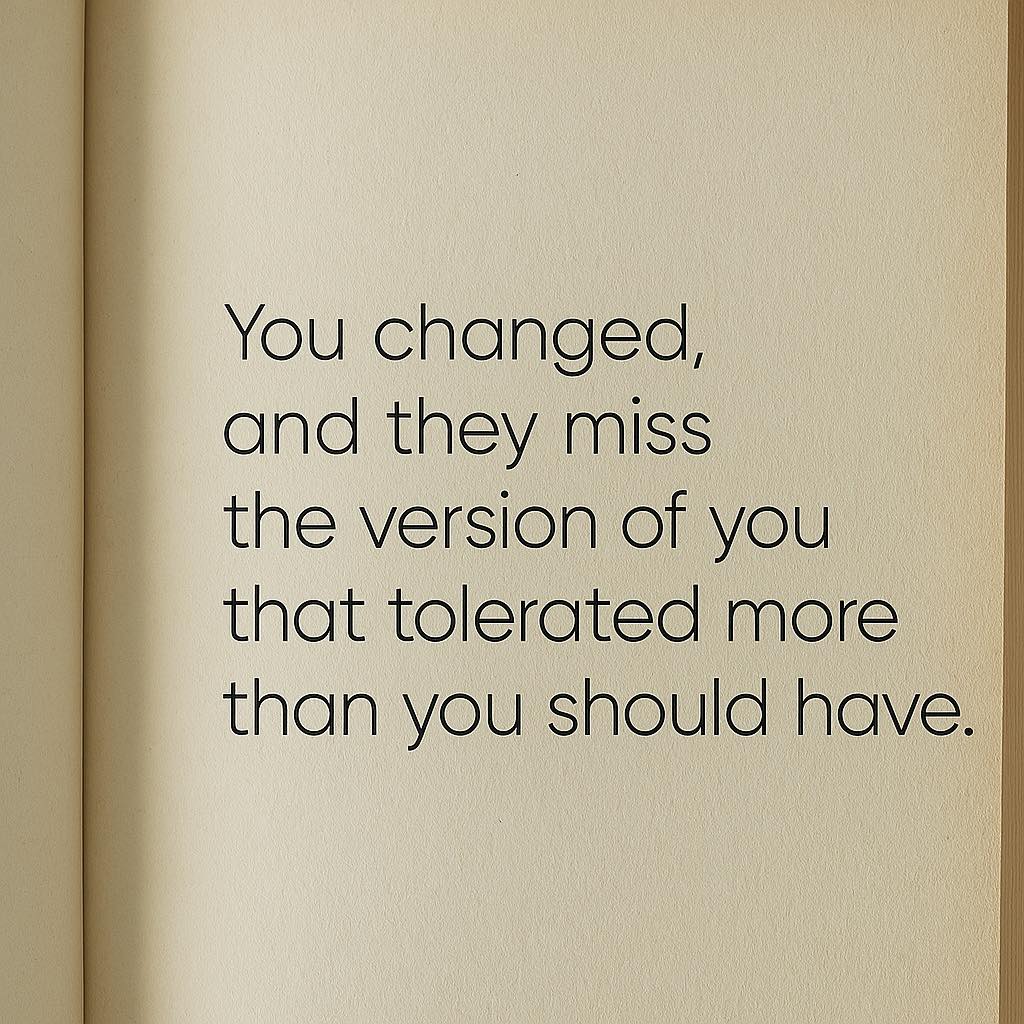Money causes stress for a lot of people—but what if the way you think about it is part of the problem? Why does spending sometimes feel wrong, even when it’s something you need? What makes saving feel like a struggle, even when you want to do better?
The truth is, your relationship with money isn’t just about numbers. It’s shaped by how you were raised, what you believe you deserve, and the pressure to “do it right.” But who decides what right looks like?
If money often brings up guilt, frustration, or fear, something needs to shift—and it’s not just your budget. Let’s look at how a few honest questions and small changes can help you feel more calm, confident, and in control.
Start With What You Believe About Money
Some thoughts about money didn’t start with you. They were picked up early—at the dinner table, in school, or just by watching how your family handled it. Maybe you heard things like “we can’t afford that” or “rich people are greedy.” These messages can shape how you earn, spend, and save—without you even realizing it.
They don’t just stay in childhood either. They follow you into adulthood, showing up when you hesitate to ask for a raise or feel bad buying something for yourself. That’s why understanding your relationship with money starts with looking back.
To understand your relationship with money better, ask yourself a few simple but honest questions:
- What feeling comes up first when I check my bank account?
- How do I truly view people who have a lot of money?
- Which one brings up more guilt—spending, saving, or earning more?
These answers matter. They help you see the patterns that quietly shape your financial habits—and give you a chance to change them.
Shift From Scarcity to Stability
Sometimes, the biggest money problem isn’t what’s in your account—it’s the feeling that it’s never enough. That’s what a scarcity mindset does. It makes you feel like you’re always behind, even when you’re doing okay. It can lead to impulse buying, stressing over small purchases, or putting off looking at your finances because it’s just too overwhelming.
This mindset can quietly shape your relationship with money without you noticing. It’s not about greed or laziness—it’s about fear. And fear can make it hard to make clear, calm choices.
To start shifting that, try changing the way you talk to yourself about money. Instead of thinking, “I’ll never get out of this,” try saying, “There’s time to figure this out.” Or, “I can take one small step today.” Those words may sound simple, but they work.
You can also pick a short phrase to repeat when money stress kicks in—something that reminds you it’s okay to slow down and breathe. That’s where stability begins.
Define What You Want Money to Do For You
People often chase money goals they don’t really connect with. Things like buying a house, saving six figures, or retiring early sound great—but do they actually match what you want from life? A healthy relationship with money starts when you stop asking, “What should I want?” and start asking, “What would more money actually help me feel?”
It’s not always about the amount—it’s what that amount allows you to do. Maybe it’s peace of mind. Or more time with your family. It could even be the feeling of safety, freedom, or simply less stress day to day.
Try writing down a few things to help you focus on what matters most:
- In five years, I want my money to support me in…
- The three values I’d like my spending to reflect are…
- I feel most financially secure when…
The clearer your answers, the easier it is to make choices that actually feel good—not just ones that look good on paper. That’s how your money can start working for you.
Make Space for Money Practices That Actually Support You
There’s no one-size-fits-all plan when it comes to building a better relationship with money. What helps one person might not work for someone else—and that’s okay. These small, everyday habits can help reduce stress, build confidence, and take some guilt out of the way you manage your money.
1. Track Without Judgment
Keeping an eye on your spending doesn’t have to mean cutting out every little treat. Instead of strict budgets, try simply writing down what you spend—and why. Not with blame, just with context. “Dinner out after a long week” tells a fuller story than just a number. This kind of tracking helps you see patterns without feeling bad about them. It’s not about judging what you buy—it’s about understanding it. When you know where your money’s going, it’s easier to make changes that actually stick. And that’s a healthier, more honest way to look at your relationship with money.
2. Talk About It (Even When It’s Uncomfortable)
Money can feel like one of the hardest things to talk about, even with people you trust. But keeping quiet often adds more pressure. Opening up—whether it’s about debt, goals, or something you’re proud of—can take a huge weight off. You don’t need to share every detail, just enough to stop feeling like you’re carrying it alone. These conversations can give you a fresh point of view or even helpful advice. The more we normalize talking about money, the less shame we carry. That’s a big step in building a better relationship with money.
3. Pick a “Money Day” Each Week
Setting aside one day a week to handle money tasks can really ease stress. When you know there’s time set aside, you stop putting things off. Pick a day that works for you—maybe Sunday morning or Wednesday night—and use it to check your balance, pay bills, or move some money to savings. You don’t need to spend hours. Just 15 to 30 minutes of focused time helps you stay on top of things. It’s like giving yourself a reset button every week. This habit makes your relationship with money feel more steady—and less like something you’re always chasing.
4. Celebrate Small Wins
Progress with money doesn’t always look big. Maybe you skipped takeout and cooked at home. Maybe you paid off a small credit card. That’s worth celebrating. These little wins are proof that you’re showing up and making good choices—even if you’re not “there” yet. Acknowledging them builds confidence. You can write them down, share them with a friend, or just give yourself a pat on the back. It keeps you focused on what’s going right, not just what’s left to do. That shift in focus can completely change your relationship with money, one win at a time.
5. Unfollow Financial Pressure Triggers
It’s easy to feel behind when you scroll through people posting about new cars, vacations, or fancy meals. But most of what you see online doesn’t show the full picture. If certain accounts make you feel like you’re not doing enough or earning enough, it’s okay to hit unfollow. Curate your feed with people who talk about money in real, honest ways. Or fill it with content that teaches, inspires, or helps you feel calm. What you see every day shapes your mindset. Removing those triggers helps your relationship with money feel less rushed—and more grounded.
6. Give Generously (In Any Amount)
Letting go of money, even a little, can feel scary if you’re used to holding on tight. But giving—whether it’s tipping extra, donating a few dollars, or buying a friend coffee—can shift your mindset from fear to trust. It reminds you that money is a tool, not just something to hold onto. You don’t have to give big to make it meaningful. The act of giving, especially when done with intention, builds a sense of flow and freedom. Over time, this habit can help soften that tight, stressed-out feeling around money and bring more ease into how you give and receive.
7. Leave Room for Joyful Spending
Saving is important—but so is spending on things that bring you happiness. It’s okay to treat yourself without guilt. Pick one or two small things each month that truly make you feel good. Maybe it’s your favorite snack, a book you’ve been eyeing, or a night out with someone you love. Planning for joyful spending means you’re not reacting on impulse—it’s a choice. And that choice says: “I deserve good things, even while being responsible.” A balanced relationship with money includes space for both smart planning and simple joys. That’s how it becomes something you enjoy—not just manage.
Why Guilt Has No Place in a Healthy Money Relationship
Feeling bad every time you spend won’t help you build better habits—it just adds more pressure. That kind of guilt can lead to quick decisions, overspending, or even ignoring your money problems completely. What really helps is being honest with yourself. When you look at what’s happening without shame, you can start making smarter choices.
You don’t need to hit a certain income level to deserve peace of mind. You don’t have to prove anything to feel okay about your relationship with money. Wanting comfort, stability, or ease is normal—and you’re allowed to have that. Real progress starts when you stop trying to “fix” yourself and instead give yourself permission to grow. Let go of punishment. What helps most is learning to treat money decisions with calm, not blame.
Final Thoughts on Creating a Healthier, More Peaceful Relationship With Money
Not everything has to be perfect for your money to feel manageable. Progress matters more than getting every decision right. If you’re feeling a little less stressed and a bit more steady, that’s already a win. The real goal isn’t tracking every cent—it’s feeling calm, clear, and confident with your choices.
When your relationship with money doesn’t leave you feeling ashamed or stuck, you start to make better moves—without fear leading the way. That’s a big shift.
Pick a story about money that helps you feel strong, not small. You’re allowed to build a version of financial peace that actually fits your life—not someone else’s. Keep what works, leave what doesn’t, and stay kind to yourself through the process.















